Global Opposition to Attacking Syria
by Stephen Lendman
It's growing. Millions oppose more war. They're fed up. They're not silent. They're speaking out. They're making their feelings known. More on that below.
Imagine claiming war on humanity's being waged for peace. Imagine mass slaughter called humanitarian intervention.
Imagine the worst of all possible outcomes. Imagine a brave new world impossible to live in.
Imagine turning it to rubble. Imagine doing so for global dominance. Imagine mass opposition failing to stop Obama. Imagine collapse of enough of international support to give him pause.
Imagine not enough to prevent bombs away. After Obama returns from G20 talks, they could ravage Syria any time. They could do so with or without Security Council and congressional authorization.
Stopping Obama matters most. Drawing a universal red line is essential. Millions against war worldwide need to act. Lawless aggression can't be tolerated. Now's the time to stop it. Later may be too late.
Russia and China forthrightly oppose war. President of the European Council Herman van Rompuy says world leaders must seek a political solution.
From St. Petersburg, he said:
"There is no military solution to the Syrian conflict, only a political (one) can end the terrible bloodshed, great violations of human rights and a far-reaching destruction of Syria."
President of the European Commission Jose Manuel Barroso called the situation "a stain on the world's conscience."
"The European Union believes that efforts should be evolved towards a political solution to the conflict," he added.
Both leaders urged all sides negotiate for peace. Attacking Syria prevents it.
China forthrightly opposes military action. Vice Finance Minister Zhu Guangyao said:
"Military action would have a negative impact on the global economy, especially on the oil price. It will cause a hike in the (its) price."
Putin's spokesman Dmitry Peskov said:
"In international relations, the only organ that can make a legitimate decision about the use of force is the United Nations Security Council - not the Russian parliament, not the US Congress."
If Washington attacks, Putin suggested a more robust response.
"We have our ideas about what we will do and how we will do it in case the situation develops toward the use of force or otherwise."he said. "We have our plans." He didn't explain.
Pope Francis spoke out for peace. He did so despite blood on his hands. The former Cardinal Jorge Mario Bergoglio was very much involved in Argentina's dirty war.
Prelates denouncing human rights abuses anywhere is taboo. Dirty war survivors accused Bergoglio of complicity with what demanded condemnation.
That was then. Is now different? Not rhetorically on Syria. Sub-service views may be entirely different. Longstanding Vatican policy is ugly. Pope Francis wasn't anointed to change things.
Nonetheless, he urged urged G20 leaders to abandon the "futile pursuit" of militarily intervening against Syria.
He made the case for peaceful conflict resolution. He lamented that "one-sided interests" prevent doing so.
"(S)enseless massacre(s)" continue, he said.
"To the leaders present, to each and every one, I make a heartfelt appeal for them to help find ways to overcome the conflicting positions and to lay aside the futile pursuit of a military solution."
On Saturday, he'll host a St. Peter's Square peace vigil. Hopefully groundswell opposition to attacking Syria will follow.
Wars beget continued conflicts. Waging them prevents resolving things peacefully. The worst of all possible outcomes is risked. Regional war may follow. It may spread globally.
On Thursday, the Vatican summoned Holy See ambassadors. Its position on Syria was addressed.
Vatican Foreign Minister Archbishop Dominique Mamberti said Ghouta's attack generated "horror and concern" worldwide.
"Confronted with similar acts one cannot remain silent, and the Holy See hopes that the competent institutions make clear what happened and that those responsible face justice," he said.
He called for peaceful dialogue. He urged not letting Syria be split along ethnic and/or religious lines.
On Wednesday, Francis Jesuit order head Rev. Adolfo Nicolas called impending US/French military action an "abuse of power."
"I cannot understand who gave the United States or France the right to act against a country in a way that will certainly increase the suffering of the citizens of that country, who, by the way, have already suffered beyond measure," he said.
Congress may violate international law. The Security Council alone decides on war or peace issues. Circumventing its authority is illegal.
On Monday, Congress returns from summer recess. Democrats aren't certain about rubber-stamping authorization for attacking Syria.
House Minority Leader Nancy Pelosi emailed Democrats for support. She's not sure if House members intend supporting Obama.
"I don't know," she said. "I think it would be important to get a majority in the Congress."
She's unsure if it's there, she added. Strong public opposition makes it uncertain.
Obama "needs to continue to make the intelligence case to the American people as to the Assad regime's responsibility for the attack and why it's in our national interest to respond to it," she said.
She stopped short of saying so-called intelligence is fake. Attacking Syria without Security Council authorization violates core international and constitutional law.
Congress has no right to authorize lawlessness. Pelosi's on the wrong side of history. If Obama attacks Syria, congressional supporters are complicit in war crimes.
On September 5,
Russia Today (RT) headlined "Congress may vote 'No' on Syria Attack."
Senate approval appears likely. House authorization remains unclear. Members are being carpet bombed with phone calls, letters and emails.
Overwhelming opposition to attacking Syria is expressed. A national social media debate rages. It's one-sided against war.
House members are running scared. Rep. Jim McDermott (D. WA) said:
"Calls and emails from my constituents are 100 to 1 AGAINST getting involved in Syria. The American people are speaking."
Rep. Elijah Cummings, (D. MD) said 99 percent of calls he's getting oppose an attack.
Rep. Andy Harris, R. MD) said:
"Constituents who have contacted my office by phone or mail oppose action in Syria 523-4 so far."
Rep. Thomas Massie, (R. KY) tweeted:
"My phones are blowing up, and an overwhelming amount of constituents oppose US military intervention in Syria."
Rep. Matt Salmon, (R. AZ) tweeted:
"Syria constituent calls 489-2 against."
Rep. Shelley Capito, (R. WV) said of "about 1,000 calls to my office, maybe 5 are for."
Rep. Vern Buchanan, (R. FL) said calls and emails to his office are 600 to 9 against striking Syria.
Rep. Rand Paul, (R. KY) said:
"I'm told the phone calls are 9 out of 10 against a strike in Syria, from my constituents in Kentucky."
Rep. Ralph Hall, (R. TX) said:
"I have received hundreds of calls and letters from constituents expressing strong opposition."
"Rep. Michele Bachmann, (R. MN) tweeted:
"My office has been inundated with constituent phone calls and emails about Syria. Virtually unanimous opposition to military intervention."
Rep. Jason Chaffetz, (R. UT) tweeted:
"So far about 500 emails regarding Syria. 499 say NO and 1 says YES go to war" and "hundreds of calls to our Provo and Washington, DC office. So far not a single call in favor of bombing Syria."
"Rep. Paul Gosar, (R. AZ) tweeted:
"The phones in my office are ringing off the hook and mail is flowing in. Almost all the people are opposed to intervention in Syria."
Numerous other congressional members reported the same thing. Americans oppose attacking Syria. They do so overwhelmingly.
It remains to be seen how Congress will vote when it reconvenes. What looked rubber-stamp at first appears uncertain.
On September 6, the
Tripoli Post headlined "Congress Heading to Vote 'No' on Syria Strike," saying:
Obama's "heading to a stunning defeat on his sought after congressional authorization for a military attack against Syria after many congressmen have learned that any action against Syria even if its ‘limited’ will definitely drag the US to a quagmire."
"According to data compiled by ThinkProgress, 217 House representatives have either decisively ruled out support to an attack on Syria or say they are unlikely to back it. A rejection of the Obama request for authorization to act against Syria requires only 217 votes to pass."
"Only 44 congressmen said they would definitely or likely to vote for a strike against Syria. The numbers are based on analysis of public statements of 407 Representatives."
"Within less than 24 hours, thirty congressmen confirmed publicly on Thursday that they would vote against the attack on Syria, while only four representatives announced that they would vote 'yes.' "
"It is very possible that the classified briefing by the Obama administration to members of the US Congress that took place on Wednesday about the attack on Syria had turned off the lawmakers who found the consequence of any attack could very well turn into a catastrophe for America."
Rep. Michael Grimm (R. NY) perhaps spoke for others. He initially supported Obama. He changed his mind. Constituent feedback convinced him.
"Thus, after much thought, deliberation and prayer, I am no longer convinced that a US strike on Syria will yield a benefit to the United States that will not be greatly outweighed by the extreme cost of war," he said.
G20 leaders are split on Syria. The
Wall Street Journal headlined "World Powers Remain Divided Over Syrian Action at G-20," saying:
Obama came to St. Petersburg for support. "But just as Congress is divided over authorizing a strike, the global community seems equally uncertain about what action to take."
"France is one of the few Western allies supporting a possible strike."
Russia, China, Brazil, India, South Africa, Italy, and other EU nations cautioned against attacking Syria without Security Council authorization.
Putin and other leaders strongly oppose military intervention. "For Mr. Obama, the summit represents a fateful diplomatic moment," said the Journal.
Failure to enlist support shows attacking Syria lacks legitimacy. Italian Prime Minister Enrico Letta opposes war. Where will it end, he asked?
He doubts what Obama plans is limited. "There are some who interpret this as the start of something of which we don't know the end," he said.
"These are obviously two very different scenarios, and I'm sure that's part of what's blocking things and creating so much difficulty."
On Thursday, the State Department said Australia, Albania, Kosovo, Canada, Denmark, France, Poland, Romania and Turkey support military intervention. Most other nations oppose it.
On September 5, G20 leaders concluded summit discussions. Its
Declaration focused on economic, investment, multilateral trade, and related issues. It omitted mentioning what was discussed on Syria.
On September 4, former US service academy graduates
headlined a press release saying:
"US SERVICE ACADEMY GRADUATES OPPOSE BOMBING SYRIA"
"FLIMSY EVIDENCE, POLITICAL BOMBAST DRIVES YET ANOTHER RECKLESS, IMMORAL WAR"
"The relentless march to war is replete with demonization, self-righteous arrogance and bullying. The risk of committing war crimes on the civilian populations is high."
"We remember well the dissembling Colin Powell’s performance. We oppose all efforts to launch an attack on Syria based on flimsy evidence and political bombast."
"As long as the brutal tools of war are used to carry fear-filled olive branches, the US will lose. There is no strategic or tactical or moral benefit to the United States for bombing Syria."
"For with all the shock and awe and terror and fear inevitably comes loathing. Bombing an already chaotic situation is only a prescription for disaster and more loathing, much more."
"There is also the enormous risk of causing a vastly wider conflict. We refuse to accept another political adventure into the same carnage of war under the same tired misrepresentations and false-flag patriotism."
"We spoke out for the innocent victims of the Iraq war and today we speak for all the innocent Syrian victims past and perhaps to come."
"In all aspects, bombing Syria is exactly the wrong thing to do. Now is the time for dialogue not dynamite."
US history reflects unconscionable crimes of war, against humanity and genocide. Afghanistan, Iraq and Libya are America's most recent great crimes.
Syria's the latest. It's being ravaged and destroyed. Direct US intervention will do it entirely.
Viktor Ozerov chairs Russia's Upper House of Parliament (the Federation Council of Russia). He heads its Defense and Security Committee. He forthrightly said:
"If we recognize the supremacy of international law and sovereignty of UN member states, the start of the US military actions against Syria bypassing the UN Security Council could only mean one thing, another American aggression against an Arab state."
"The aftermath of the US aggressive operations are still fresh in our memory; Yugoslavia, Iraq, Libya."
"The list could be extended. No arguments can be accepted here in defense of democracy or human rights."
"What is really happening is that Washington cannot agree that countries exist that do not dance to its tune or play by its rules."
Stop NATO editor
Rick Rozoff was clear and unequivocal. The "gravity of the situation" is clear, he said.
"(T)he world needs to be able to marshal all the resources it has; information, organization, moral resources, in order to combat the threat of a war against Syria, which could quite entirely possibly expand into something not only a regional conflict or conflagration, but into something that could be a global showdown."
"(W)orld public opinion has to tell Washington, both the legislative and executive branch: 'No war! It's against the law internationally! It's a moral crime! And it's an historic crime that will be judged in that manner and its perpetrators will be held accountable!"
Emergency conditions exist. Opposing war on Syria is crucial. Do it now. Stopping Obama matters most. The alternative is too potentially catastrophic to risk.
Stephen Lendman lives in Chicago. He can be reached at lendmanstephen@sbcglobal.net.
His new book is titled "Banker Occupation: Waging Financial War on Humanity."
http://www.claritypress.com/LendmanII.html
Visit his blog site at sjlendman.blogspot.com.
Listen to cutting-edge discussions with distinguished guests on the Progressive Radio News Hour on the Progressive Radio Network.
It airs Fridays at 10AM US Central time and Saturdays and Sundays at noon. All programs are archived for easy listening.
http://www.progressiveradionetwork.com/the-progressive-news-hour
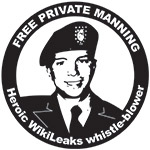









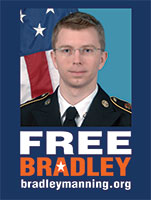


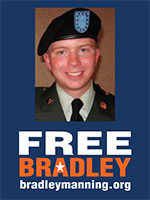
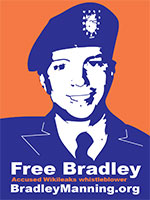


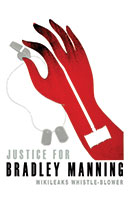
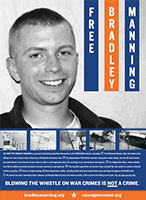










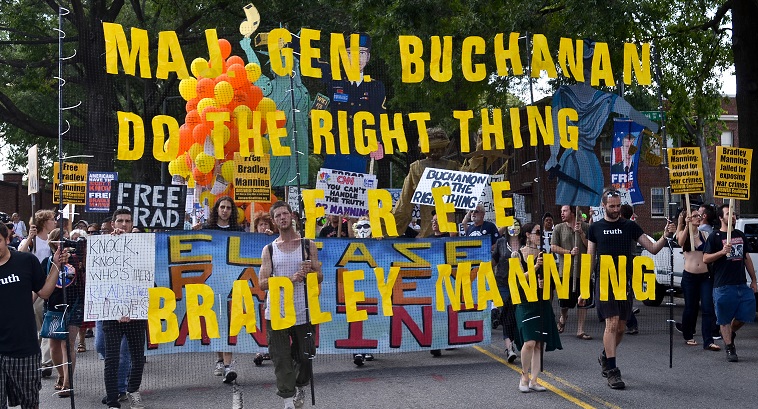













4 thoughts on “Featured graphics”